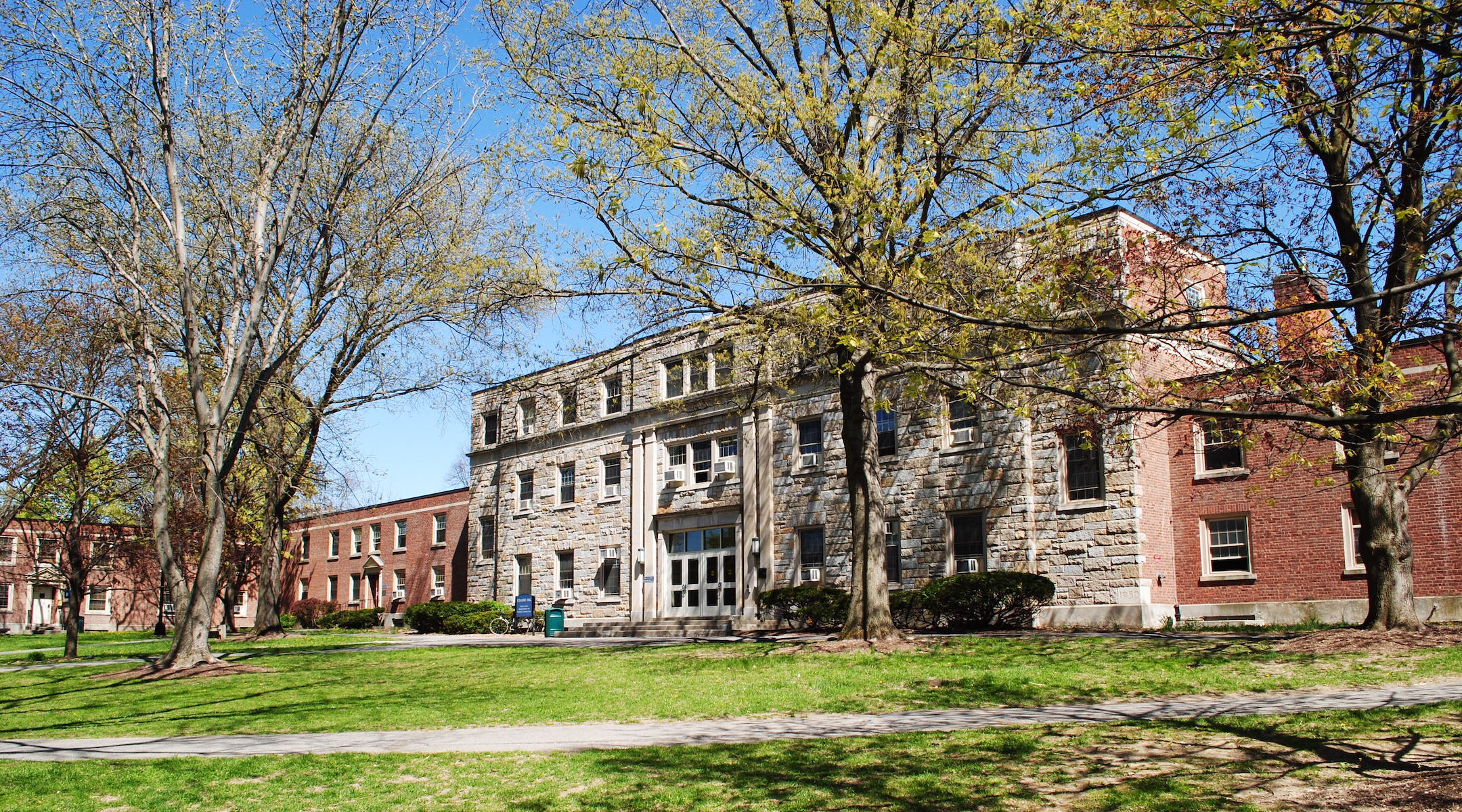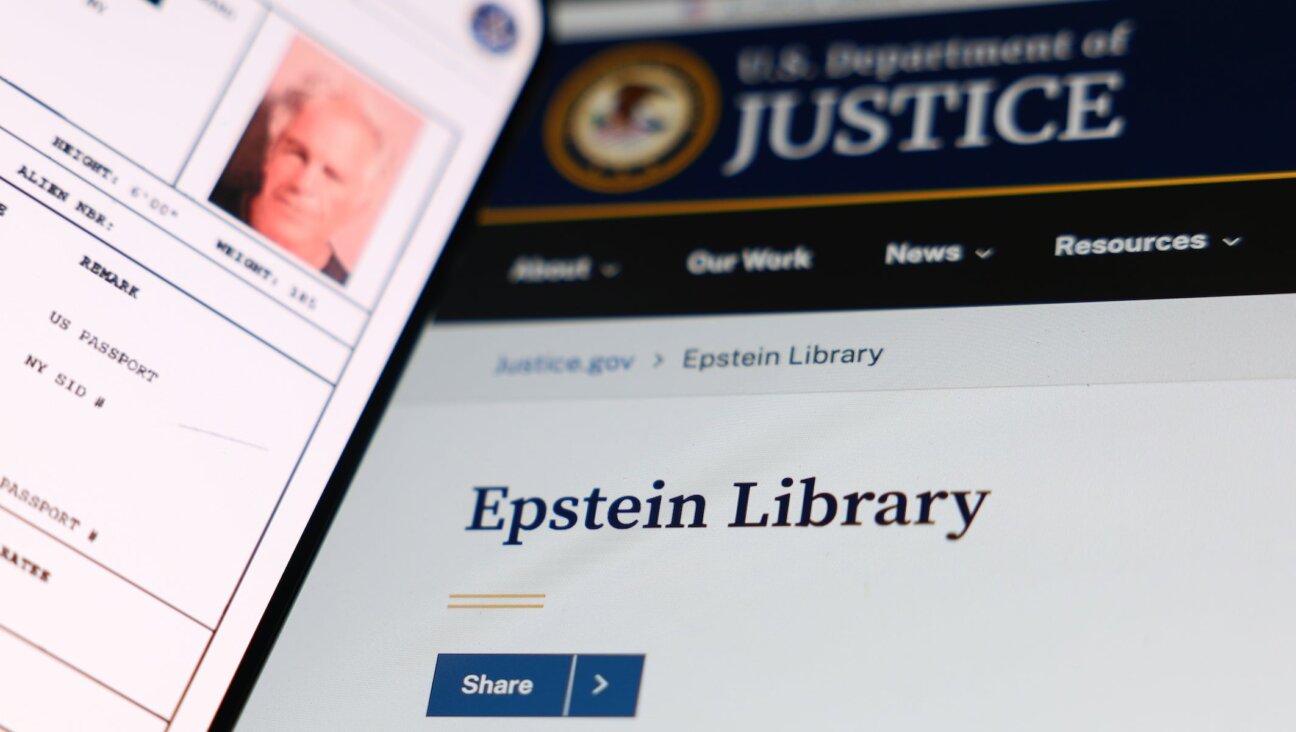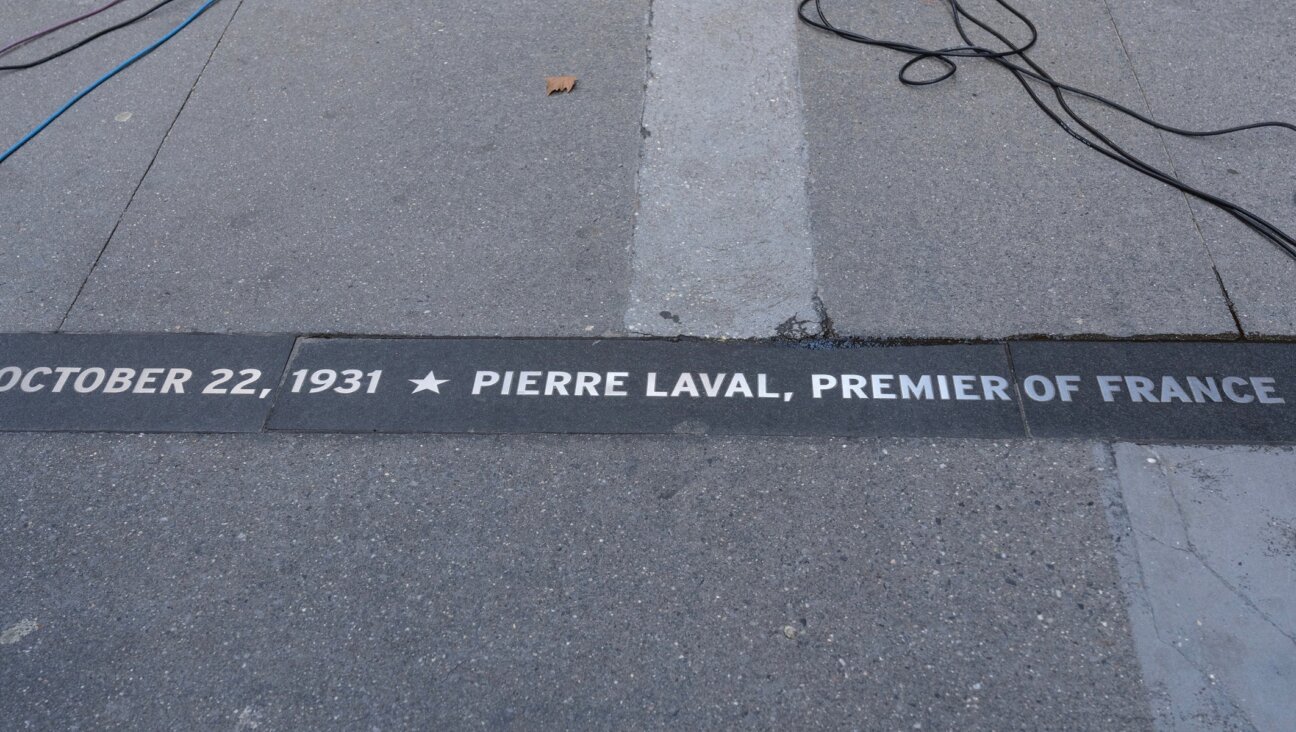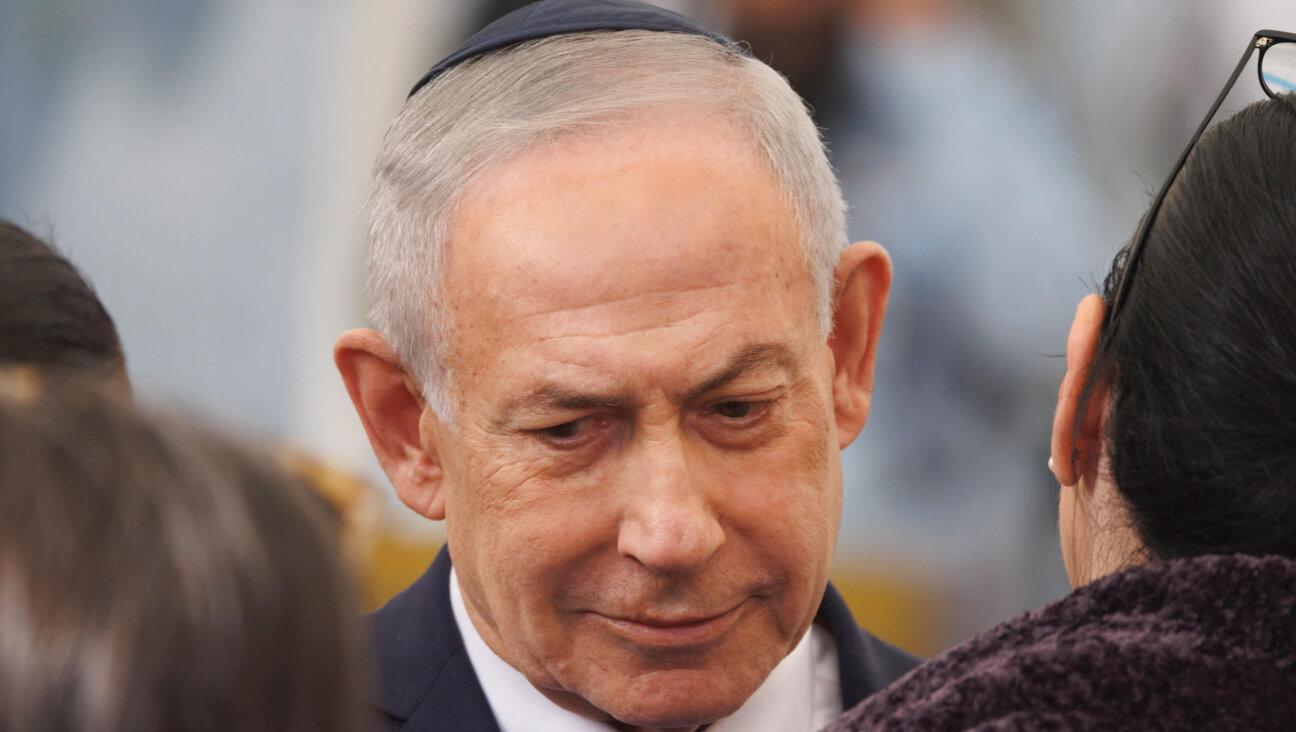Feds to investigate NY college where an assault survivor group booted a Zionist student
‘No student should ever be excluded from campus because of facets of their Jewish identity, let alone survivors of sexual assault,’ said a co-founder of Jewish on Campus

College Hall at SUNY New Paltz in New Paltz, New York, May 1, 2013. (crz4mets2 via Wikimedia Commons)
(JTA) – The U.S. Department of Education has opened an investigation into the State University of New York at New Paltz surrounding an incident in which a student-led group for sexual assault survivors kicked out one of its co-founders for sharing a pro-Israel Instagram post.
Pro-Israel legal groups filed a complaint with the department last year alleging that the school did not respond forcefully enough to the incident, which they characterized as antisemitic discrimination. They are calling on the school to improve its training on antisemitism, which they define as including targeting students for a “connection to Israel.”
Announced Thursday, the investigation is taking place under the auspices of the department’s Office of Civil Rights, which looks into allegations of discrimination at educational institutions that receive federal funding. It is the latest in a series of investigations opened into allegations of campus antisemitism since the Trump administration broadened the office’s mandate to include certain kinds of anti-Israel speech in 2019.
It is also the first antisemitism investigation to be opened since the Biden administration unveiled a plan last month to combat antisemitism that includes a section on higher education. The 60-page document outlining the plan notes that “Jewish students and educators are targeted for derision and exclusion on college campuses.”
“No student should ever be excluded from campus because of facets of their Jewish identity, let alone survivors of sexual assault,” Julia Jassey, a recent University of Chicago graduate who is the co-founder and CEO of the college antisemitism watchdog group Jewish on Campus, said in a press release celebrating the investigation.
Jewish on Campus brought the federal complaint in partnership with the Brandeis Center for Human Rights Under Law, a pro-Israel legal group that often involves itself in campus conflicts over speech about Israel. The complaint was filed on behalf of two Jewish students at the school, which is located in upstate New York.
A spokesperson for SUNY New Paltz said the university does not comment on pending investigations, adding, “We unequivocally condemn any attacks on SUNY students who are Jewish, and we will not tolerate anti-Semitic harassment and intimidation on campus.” In the immediate aftermath of the controversy, the school’s president condemned antisemitism but indicated that, because the student group was not formally recognized by the university, administrators were limited in their ability to respond.
The federal investigation will focus on two claims: that SUNY New Paltz did not respond appropriately to the exclusion of a Jewish student from a student group, and that students were being harassed on the basis of their Judaism.
The investigation itself does not mean the department believes the claims have merit — only that they fall under the purview of its Office of Civil Rights under a section of the law known as Title VI.
The complaint focuses on an episode that CNN featured as part of a prime-time special on antisemitism in the United States last year. It was filed on behalf of Cassandra Blotner, a Jewish student who was, according to coverage by the campus newspaper, removed from the student group New Paltz Accountability over her pro-Israel Instagram post. It was also filed on behalf of another Jewish student, Ofek Preis, who quit the group in solidarity with Blotner. Blotner was a co-founder of the group, which seeks to pressure the university to adopt greater transparency in its sexual assault investigations.
As reported last year by the New Paltz Oracle, a student newspaper, Blotner shared an infographic on Instagram in December 2021 from pro-Israel influencer Hen Mazzig reading, in part, “Jews are an ethnic group who come from Israel,” and, “Israel is not ‘a colonial state’ and Israelis aren’t ‘settlers.’ You cannot colonize the land your ancestors are from.”
Shortly afterward, Blotner said, her fellow group leaders messaged her to request a conversation about her views on Israel. One wrote, “Personally, I think Israel is a settler colonial state and we can’t condone the violence they take against Palestinians.”
Blotner at first refused to have a conversation with other members of the group, then later suggested they talk to the school’s Jewish Student Union — at which point, she said, the group kicked her out. Preis then decided to resign from the group (administrators said she had only been a prospective member).
“They told me that because I’m a Zionist, that that means I’m an oppressor, and that means I’m not against all forms of oppression, which means that I’m not against sexual violence,” Blotner told CNN’s Dana Bash in the antisemitism special.
One day after the publication of the student newspaper article detailing the allegations against the group, New Paltz Accountability appeared to defend its opposition to Zionism in an Instagram post.
“Being against sexual violence but indifferent to colonialism are conflicting ideologies,” the post stated. “Justifying the occupation of Palestine, in any way, condones the violence used to acquire the land. This does not mean we do not support survivors or students with different political beliefs.”
According to the Brandeis Center and Jewish on Campus, Blotner requested that university administrators provide her with a security escort because her interactions with the group left her feeling unsafe on campus, but they declined her request. She graduated last month, thanking the Brandeis Center, Jewish on Campus and Mazzig in an Instagram post that said they “lifted me up when I was down.”
In response to the incident, SUNY New Paltz’s president met with Jewish students and issued a strongly worded condemnation of antisemitism, saying, “Excluding any campus member from institutional events and activities on the basis of differing viewpoints on such matters is a traditionally defined form of antisemitism.”
The university, according to the Brandeis Center, also said that it should adopt the International Holocaust Remembrance Alliance’s working definition of antisemitism. That definition has been endorsed by dozens of U.S. universities, according to the American Jewish Committee, but has drawn criticism for saying that certain criticisms of Israel are antisemitic.
The Brandeis Center has frequently called for universities to adopt the IHRA definition, yet in this case it said SUNY New Paltz had not gone far enough and called on the school to change other policies in response to the incident. Some previous investigations into schools accused of antisemitism violations have resulted in universities pledging to make tangible changes to their diversity training programs and other initiatives.
That was the case recently at the University of Vermont, which was the subject of a federal civil rights complaint that also partially revolved around a student group for sexual assault survivors excluding Zionists. In 2020, the University of Illinois pledged to take steps to combat antisemitism days after the Department of Education opened up a Title VI investigation into the school.
But other campus communities faced with Title VI antisemitism investigations into Israel-related matters have seen the investigations prompt division and distrust. George Washington University faced its own investigation days after clearing a professor of antisemitism allegations brought against her by pro-Israel groups.
And the University of California, Berkeley saw an investigation opened into its law school after the Brandeis Center’s founder, a former Trump administration official, alleged in an op-ed that it was propagating “Jew-free zones” because an alliance of student groups at the law school pledged not to invite Zionist speakers. The Jewish dean of the law school vehemently denied the charge.
This article originally appeared on JTA.org.














